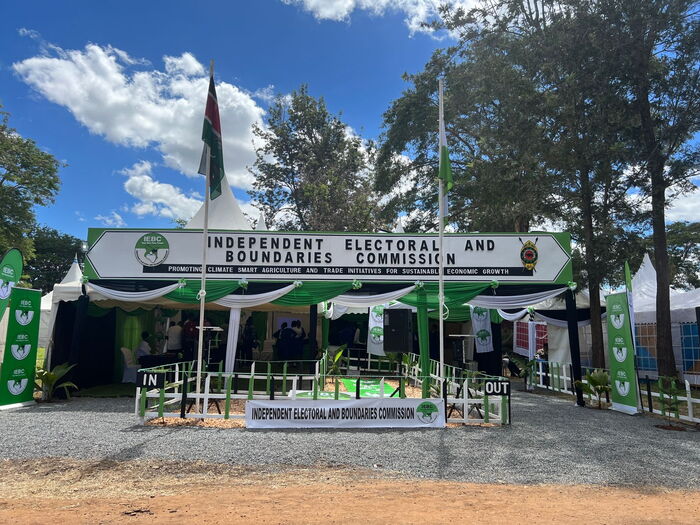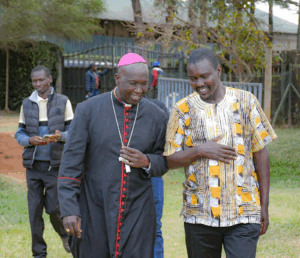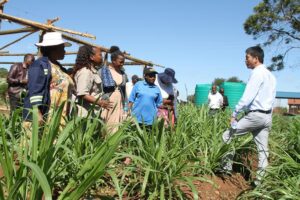IEBC Raises Alarm Over Reduced Budget, Says 2027 Elections Could Be Affected
Ethekon further noted that some of the devices procured for the 2013 and 2017 elections have become obsolete and acquiring updated equipment is not avoidable.
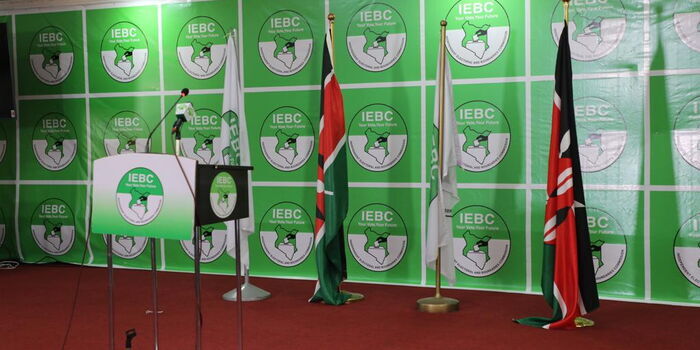
An image of a podium by the IEBC in readiness for a presser at Bomas of Kenya in Nairobi on August 5. photo/Courtesy
By Ruth Sang
The IEBC warned that insufficient funding may compromise the effective conducting of the 2027 General Elections. Its Chairperson Erastus Ethekon noted in an interview with KBC on Tuesday, November 18, that a drastic reduction to the commission’s proposed election budget may interfere with important operations required for a free, fair, and credible poll.
The commission had submitted a budget request of Ksh 61 billion to Parliament to support preparations for the upcoming elections. Nevertheless, cuts were made, a move Ethekon says may gravely undermine the IEBC’s capacity to manage the complex national exercise.
Ethokon indicated that a big proportion of the election budget—about 53 per cent—is used to deploy personnel in polling stations, constituency tallying centres, and the national tallying centre. In the 2022 General Election, IEBC employed over 500,000 temporary staff, an operation that required huge logistical and financial support.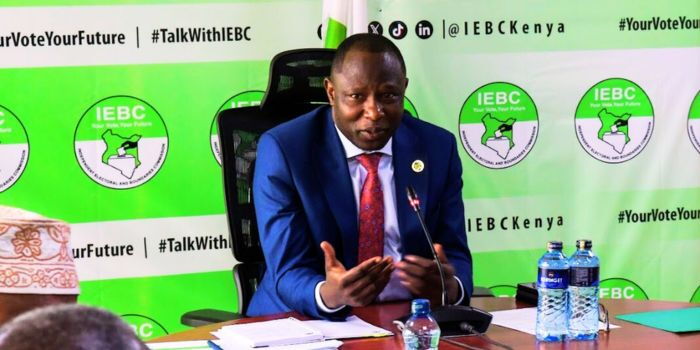
Ethekon warned, “If this trend of dwindling budget continues, we shall be compelled to scale down the number of deployed officers, thus directly affecting transparency and credibility of the process.
He further added that the coming election would heavily rely on digital systems and that insufficient funds would threaten the reliability of the Kenya Integrated Elections Management System, KIEMS. The KIEMS platform integrates the critical technologies adopted for use throughout the election cycle, which include Biometric Voter Registration, BVR; the Electronic Voter Identification system, EVID; and the Electronic Results Transmission System, ERTS.
Ethekon further noted that some of the devices procured for the 2013 and 2017 elections have become obsolete and acquiring updated equipment is not avoidable. “Our electoral process is technology-driven. Without modern kits and the infrastructure to support them, the effectiveness of the entire electoral chain is at risk,” he said.
Beyond financial constraints, the IEBC chairperson raised another concern: the recent legal changes on the prosecution of election offenses. In previous provisions of the Election Offences Act, prosecutorial powers for election offenses rested in the commission. Those responsibilities now lie with the Office of the Director of Public Prosecutions (ODPP).
Ethekon argued that such a shift had qualitatively affected accountability in electoral offences, with most cases remaining unresolved. “Previously, when IEBC had the mandate to prosecute, action was swift, and accountability was more assured. With the ODPP now handling these matters, most cases remain dormant, creating a perception of impunity,” he added.
Despite the challenges, the commission has already begun preparations for the 2027 polls. IEBC is currently conducting Continuous Voter Registration throughout the country, calling on eligible Kenyans to enroll early. The registration has been suspended only in areas slated for by-elections on November 27. Ethekon called on the government and Parliament to re-evaluate the funding needs of the commission, cautioning that under-resourcing might compromise the integrity of one of Kenya’s most significant democratic exercises.